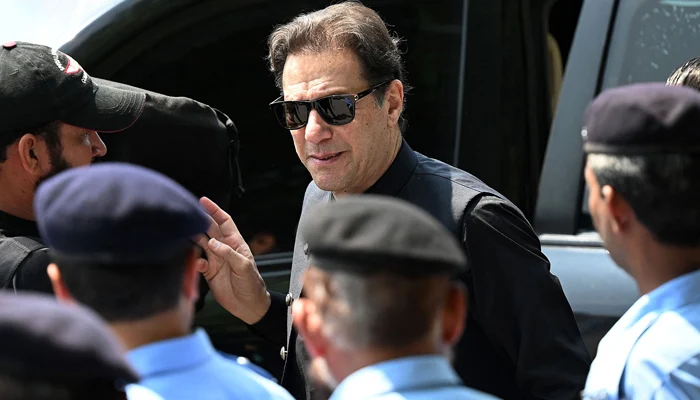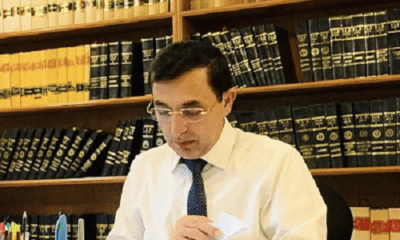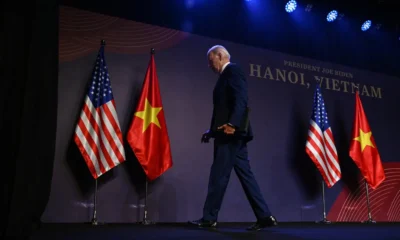Politics
Unraveling the Cipher Controversy: Imran Khan’s Jail Trial Raises Questions of Transparency and Security
In a dramatic legal twist, the Islamabad High Court has halted Imran Khan’s impending jail trial in the cipher case, casting a spotlight on issues of transparency and security. This development comes hot on the heels of the federal cabinet’s controversial approval of the trial, prompting serious questions about its necessity and procedural legitimacy. With the court expressing skepticism and drawing parallels to historical cases, the unfolding saga leaves the nation awaiting crucial answers.

Islamabad, November 14, 2023 – In a surprising turn of events, the Islamabad High Court (IHC) has issued a stay order against the jail trial of Pakistan Tehreek-e-Insaf (PTI) Chairman Imran Khan in the cipher case, raising significant concerns about the transparency and security of the proceedings.
A two-member bench, comprising Justice Miangul Hassan Aurangzeb and Justice Saman Rafat Imtiaz, made this decision during the hearing of Imran Khan’s intra-court appeal against the trial in Adiala jail. The move comes on the heels of the caretaker federal cabinet’s approval of the jail trial for the former prime minister and PTI Vice Chairman Shah Mahmood Qureshi due to alleged security concerns.
Attorney General Mansoor Awan presented arguments before the court, stating, “The federal cabinet approved the jail trial of Imran Khan.” Justice Aurangzeb expressed skepticism, emphasizing that all trials should be held in open court, making this potential jail trial an extraordinary one.
The attorney general clarified that it was not an extraordinary trial but merely a jail trial. However, Justice Aurangzeb questioned the legitimacy of the decision-making process, pointing out that the notifications did not adhere to the relevant high court rules.
“When, under what circumstances, and on what basis was it decided that there would be a jail trial?” Justice Aurangzeb asked, seeking clarification on the necessity of such proceedings. Imran Khan’s counsel, Raja, revealed that five witnesses were still present in jail to record their statements.
The judge highlighted the need for answers, questioning the federal cabinet’s approval of the jail trial and the status of court proceedings before this approval. He drew a historical parallel, mentioning the jail trial of Indira Gandhi’s murder case, where journalists were allowed to cover the proceedings.
The IHC adjourned the hearing on the intra-court appeal against the jail trial until November 16, signaling a prolonged legal battle over the controversial decision.
In August of this year, Imran Khan and Shah Mahmood Qureshi were booked under the Official Secrets Act 1923 in the cipher case after the Federal Investigation Agency (FIA) invoked Section 5 of the said law. The diplomatic cable reportedly went missing from Imran’s possession, allegedly containing a threat from the United States to topple the PTI’s government.
As the legal saga unfolds, questions about the transparency, necessity, and security of the jail trial persist, leaving the nation eagerly awaiting answers in the coming days.













